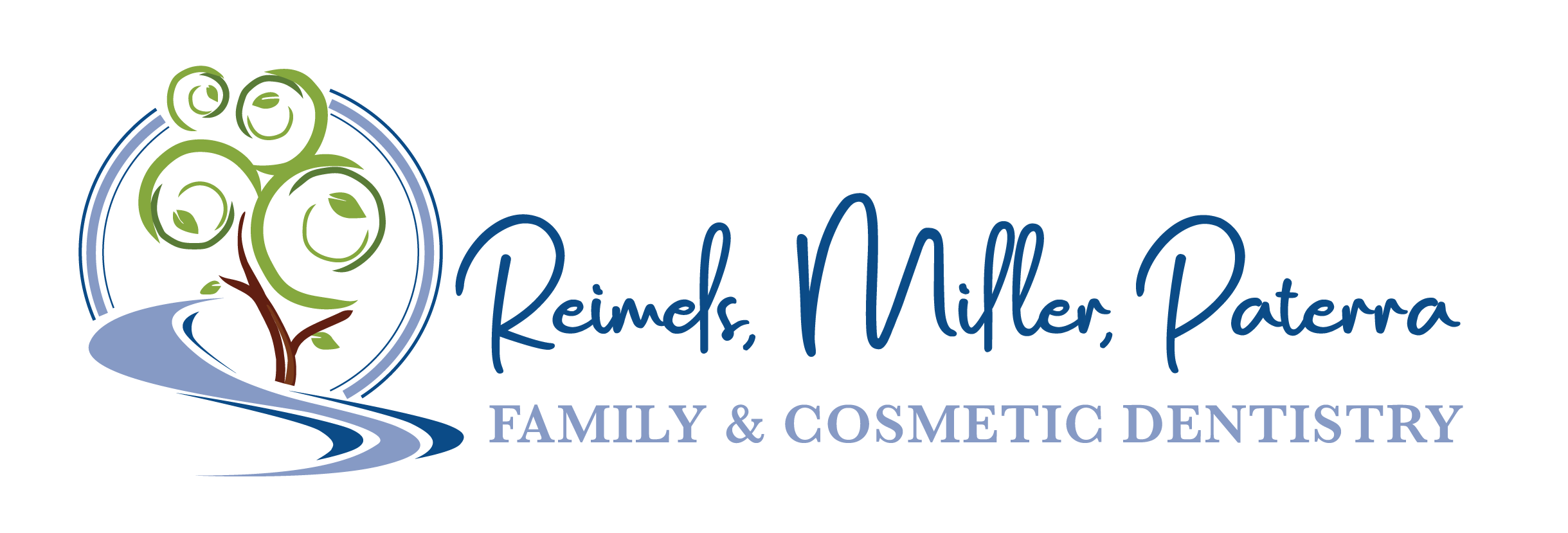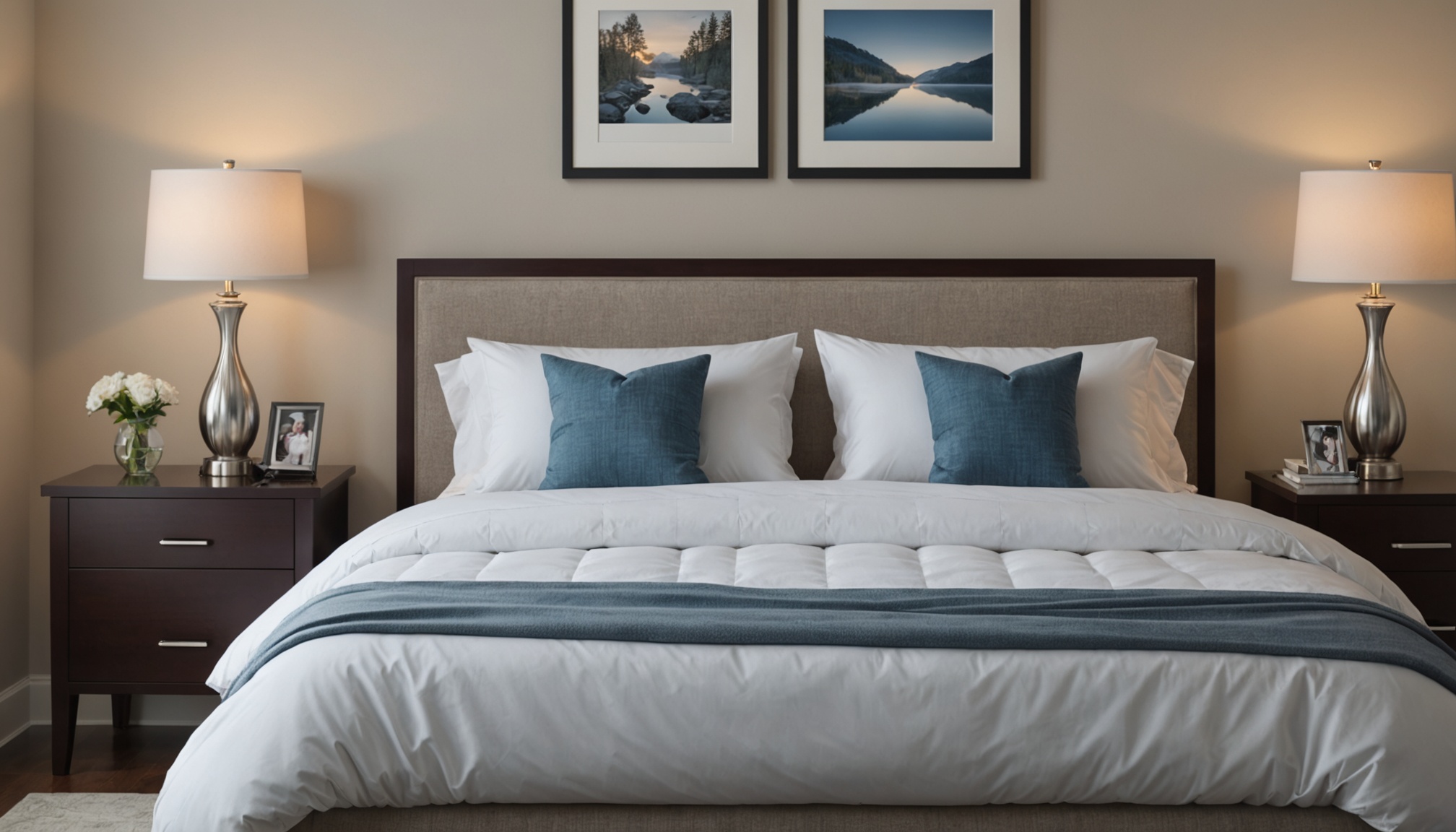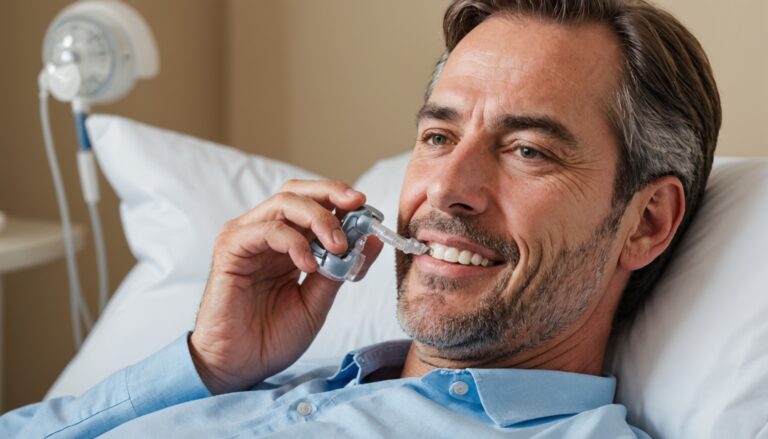Dental Solutions for Sleep Apnea
Importance of Dental Treatments
Dental treatments are becoming a crucial component in managing sleep apnea, particularly for those who are CPAP-intolerant or prefer alternative options. Oral devices, which are custom-fitted by dentists or orthodontists, can prevent blocked airways during sleep. For individuals experiencing moderate sleep apnea, these devices can be an effective alternative to traditional Continuous Positive Airway Pressure (CPAP) machines. By keeping the airways open, they help improve airflow and alleviate daytime fatigue associated with sleep apnea.
Oral appliances can relieve symptoms of sleep apnea by repositioning the lower jaw or pulling the tongue forward, which helps keep the throat open during the night. The effectiveness of these dental solutions has been recognized, making them a viable option for many who are exploring treatment options for moderate sleep apnea.
Role of Dentists in Sleep Apnea Care
Dentists play a vital role in the diagnosis and management of sleep apnea. They are responsible for evaluating the patient’s oral health and overall suitability for oral appliance therapy. The process typically begins with a thorough assessment of the patient’s dental structure and alignment, followed by the creation of a customized oral appliance designed specifically for their needs.
Regular follow-ups with a dentist are essential to ensure the appliance fits well and functions effectively. This ongoing relationship helps monitor the effectiveness of the treatment and make necessary adjustments. Given their expertise, dentists not only provide the necessary oral appliances but also educate patients on the benefits and use of these devices, as well as potential lifestyle modifications that complement the treatment [1].
Oral appliances might not only serve those with moderate or mild obstructive sleep apnea but also reduce symptoms like snoring, enhancing quality of sleep for both the sleeper and their partner [2]. To explore more about how oral appliances compare to CPAP, visit our link on the difference between cpap and oral appliance therapy.
Oral Appliances for Sleep Apnea
Oral appliances offer a practical solution for individuals seeking alternatives to CPAP therapy for managing moderate sleep apnea. These devices keep the airway open during sleep and are custom-fitted by dentists or orthodontists.
Custom-Fitted Devices
Custom-fitted oral appliances are designed specifically for your mouth, ensuring comfort and effectiveness. These appliances work by repositioning the jaw or tongue to prevent airway blockage during sleep. They are especially beneficial for individuals who find CPAP machines uncomfortable or intolerable. According to the NHLBI, these devices significantly reduce snoring and improve overall sleep quality.
| Feature | Custom-Fitted Devices |
|---|---|
| Comfort | Tailored to individual mouth shape |
| Adjustment | Can be modified for fit and comfort |
| Effectiveness | Helps maintain an open airway during sleep |
Regular follow-ups with your dentist are necessary to ensure that your custom appliance continues to fit properly and remains effective over time.
Types of Oral Appliances
There are two main types of oral appliances utilized in the treatment of sleep apnea:
-
Mandibular Advancement Devices (MADs): These devices move the lower jaw forward to open the airway. This is the most common type of oral appliance and can significantly alleviate symptoms of sleep apnea and snoring [3].
-
Tongue Retaining Devices (TRDs): These devices hold the tongue in a forward position to prevent it from collapsing into the airway during sleep. TRDs may be less common but are effective for certain individuals [4].
| Appliance Type | Description | Use |
|---|---|---|
| Mandibular Advancement Devices (MADs) | Moves the mandible forward to open the throat | Most users favor this method |
| Tongue Retaining Devices (TRDs) | Holds the tongue forward to prevent airway blockage | Useful for individuals with specific airway issues |
Both types of appliances are considered viable treatment options for sleep apnea and may be used to improve comfort and sleep quality while minimizing snoring. They present an effective alternative to CPAP therapy and may be easier to adhere to, making them an appealing choice for many users. For more detailed information on the effectiveness of these devices, you can visit our page on oral appliance vs cpap for sleep apnea.
Orofacial Therapy for Sleep Apnea
Orofacial therapy is an emerging treatment option for individuals experiencing moderate sleep apnea. This therapy focuses on strengthening the mouth muscles and repositioning the tongue and airway muscles, providing a non-invasive solution to improve airway function during sleep.
Strengthening Mouth Muscles
Exercises designed to strengthen the mouth and facial muscles are a critical component of orofacial therapy. By targeting the muscles that control the lips, tongue, and upper airway, this therapy aims to enhance muscle tone and support. Improved muscle strength helps prevent airway collapse during sleep, which is often the cause of obstructive sleep apnea.
| Benefits of Strengthening Mouth Muscles | Description |
|---|---|
| Improved Airway Function | Stronger muscles help maintain an open airway during sleep. |
| Reduced Snoring | Enhanced muscle control can diminish snoring by preventing airway obstruction. |
| Non-Invasive Treatment | Exercises can be performed at home without the need for invasive procedures. |
Research indicates that both children and adults can benefit from orofacial therapy [5]. You may want to consult with a dentist who specializes in sleep apnea to receive personalized guidance.
Repositioning Tongue and Airway Muscles
Repositioning exercises focus on moving the tongue and airway muscles to improve their function during sleep. This process involves specific techniques to keep the tongue forward and maintain an open airway. For example, some exercises may involve gently pushing the tongue against the roof of the mouth while swallowing.
| Techniques for Repositioning | Purpose |
|---|---|
| Tongue Protrusion | Keeping the tongue forward helps prevent it from blocking the airway. |
| Jaw Positioning | Bringing the lower jaw forward can open the throat, making breathing easier. |
Orofacial therapy can be particularly beneficial for individuals who are intolerant to continuous positive airway pressure (CPAP) therapy, as it offers a functional alternative to CPAP treatment options for moderate sleep apnea. Regular follow-up with a healthcare professional is essential to track progress and adjust exercises as needed.
Considering dental solutions like orofacial therapy may significantly enhance your sleep quality and overall well-being. If you’re interested in this non-invasive approach, consult with a dentist experienced in managing sleep apnea. For alternative treatments and devices, visit our article on how dentists help with sleep apnea.
Alternatives to CPAP Therapy
Benefits of Oral Appliances
Oral appliances can serve as an effective alternative to Continuous Positive Airway Pressure (CPAP) therapy for managing sleep apnea. These custom-fitted devices maintain an open airway during sleep, helping to alleviate snoring and mild obstructive sleep apnea. They work by gently repositioning the jaw or tongue to prevent airway obstruction. According to the Mayo Clinic, this can make them easier for some people to use compared to traditional CPAP machines.
The benefits of oral appliances include:
- Comfort: Many individuals find oral appliances less cumbersome than CPAP masks.
- Portability: They are compact and easy to travel with.
- Ease of Use: No need for complicated setup or electricity.
- Custom Fit: Dentists tailor these devices to fit your mouth comfortably.
| Benefit | Description |
|---|---|
| Comfort | Less intrusive than CPAP masks |
| Portability | Easy to carry while traveling |
| Ease of Use | Simple application without equipment |
| Custom Fit | Tailored to fit your mouth |
While oral appliances may not fully replace CPAP for everyone, they can be a valuable option for those who are CPAP-intolerant or seeking easier treatment solutions. Regular follow-ups with your dentist are essential to ensure the device continues to fit well and function effectively.
Effectiveness Compared to CPAP
While CPAP therapy is typically more effective for severe cases of sleep apnea, oral appliances are gaining recognition for their abilities, especially for individuals with mild to moderate sleep apnea. Research indicates that oral devices can prevent blocked airways during sleep and keep the throat open [4].
| Treatment Option | Success Rate | Suitability for Mild/Moderate Apnea |
|---|---|---|
| CPAP | High (85-90%) | Best for moderate to severe cases |
| Oral Appliances | Moderate (60-80%) | Effective for mild to moderate cases |
Despite being generally less effective than CPAP, oral appliances could be more appealing due to their comfort and ease of use. Effectiveness is also contingent on proper fitting and adherence to follow-up appointments.
For further insights into how oral appliances stack up against CPAP machines, check out our article on oral appliance vs CPAP for sleep apnea. If you’re considering these alternatives, consult with your dentist about the best treatment options for moderate sleep apnea. You can also learn more about how dentists help with sleep apnea and the various treatment options for moderate sleep apnea.
Considerations for Dental Sleep Solutions
When exploring treatment options for moderate sleep apnea, it’s essential to understand the suitability of dental sleep solutions for various cases, as well as the consultation process you may encounter.
Suitability for Mild and Moderate Cases
Dental sleep solutions, particularly custom-fitted oral appliances, are typically recommended for individuals with mild to moderate obstructive sleep apnea. These devices are designed to prevent blocked airways during sleep, making them a helpful alternative for those who cannot tolerate CPAP machines. According to the NHLBI, dentists may prescribe these appliances to maintain open airways, especially for patients experiencing discomfort with conventional treatments.
The following table outlines the suitability of oral appliances based on severity:
| Severity of Sleep Apnea | Recommended Treatment Options |
|---|---|
| Mild Sleep Apnea | Oral appliances, lifestyle changes |
| Moderate Sleep Apnea | Oral appliances, dental interventions, consider CPAP |
| Severe Sleep Apnea | CPAP typically favored, dental solutions as supplementary |
By choosing dental appliances, you can effectively address your sleep apnea symptoms while significantly improving your quality of sleep.
Consultation Process and Follow-Up
The consultation process for dental sleep solutions begins with a thorough evaluation by a dental professional. They will assess your symptoms, medical history, and lifestyle to determine the best course of action. The consultation is critical in ensuring the chosen appliance meets your specific needs. You can expect to discuss:
- Your sleep patterns
- Possible lifestyle changes
- Types of appliances suitable for you
Follow-up appointments are equally important. They help monitor the effectiveness of the device and make necessary adjustments to ensure optimal comfort and performance. This ongoing care helps improve adherence to treatment and enhances your overall treatment outcome.
For additional resources on how dentists assist with sleep apnea, refer to our article on how dentists help with sleep apnea. If you’re wondering about costs and insurance coverage, check out insurance coverage for oral appliance sleep apnea treatment.
Through proper evaluation and ongoing support, dental sleep solutions can significantly impact your quality of sleep and overall health.
Advancements in Dental Sleep Medicine
Role of Dentists in Sleep Apnea Management
Dentists play a critical role in the management of sleep apnea, particularly for individuals who are CPAP intolerant or seeking alternative treatment options. They can provide custom-fitted oral appliances designed to address mild to moderate cases of obstructive sleep apnea. These devices work by preventing blocked airways during sleep and are tailored to fit the unique structure of your mouth [5].
During your initial consultation, your dentist will perform a comprehensive evaluation which may include reviewing your medical history, conducting a physical examination, and possibly collaborating with sleep specialists for a more detailed assessment. They will be able to guide you through the process of selecting the most appropriate dental solution, ensuring that your treatment is both effective and comfortable. For more on how dentists contribute to sleep apnea care, read about how dentists help with sleep apnea.
Research on Dental Treatment Efficacy
Recent studies have demonstrated promising results regarding the efficacy of dental treatments for sleep apnea. Oral appliances have been shown to be effective in reducing airway obstruction and improving overall sleep quality in patients. Research suggests that many patients experience a significant decrease in their apnea-hypopnea index (AHI) when using oral appliances compared to baseline measurements.
| Treatment Options | Success Rate (%) |
|---|---|
| Oral Appliances | 50-80% |
| CPAP Therapy | 85-90% |
This table presents general success rates for dental treatments versus CPAP therapy. While CPAP remains a reliable treatment option, many individuals prefer dental solutions due to their comfort and ease of use.
Studies also indicate that orofacial therapy, which includes exercises to strengthen the mouth and facial muscles, can further enhance the effectiveness of oral appliances [5]. Such therapy aims to reposition the tongue and muscles that control the upper airway, promoting better airway stability during sleep.
If you’re considering dental solutions, it’s vital to understand the success rates and how they compare to traditional methods. For detailed insights, check the article on oral appliance vs CPAP for sleep apnea to find a treatment option that best suits your needs.








